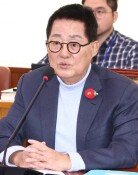Gov`t Policies to Fight Economic Crisis Under Fire
Gov`t Policies to Fight Economic Crisis Under Fire
Posted February. 03, 2009 04:31,
An owner of a textile company in Daegu last month asked Korea Credit Guarantee Fund for a guarantee, but was rejected.
Despite the governments announcement that the fund would provide more credit guarantees, he was told he could not benefit from the increased limit since his company had a low credit rating and had borrowed too much money.
As commercial banks remain reluctant to lend money to small and medium-size enterprises, the government in December last year announced more financial support for the companies through a credit guarantee. To support this measure, the National Assembly approved a budget of 900 billion won (647 million U.S. dollars) when it deliberated on the 2009 government budget.
The business owner said, I cannot believe the government, which says it will provide financial support to smaller companies. It would be better to directly dole out the money to cash-strapped small companies rather than investing in state-run financial companies.
The government has released a string of measures designed to help Koreans overcome economic difficulty. Many complain, however, that they cannot benefit from the measures. In other words, the measures are too inefficient to be welcomed by the public and companies.
Na Seong-rin, a member of the ruling Grand National Party and the parliamentary committee on strategy and finance, released a report on the incumbent administrations policies.
According to the report, the government has announced 73 policies including 39 on finance; 21 on small companies; 10 on real estate; and three on welfare.
Nevertheless, Koreans say such policies have been inefficient since they fail to reflect market conditions and rely on a variety of organizations for implementation instead of being centrally managed by one. The government has also failed to promote its own policies.
Moreover, the policies are inefficient since they are announced long before being applied. Worse, their effects usually materialize long after they are announced.
The currency option knock in, knock out, or KIKO, has led to massive losses for Korean companies. One victim said, The government said in October last year it would provide financial support for KIKO victims. But we got around one billion won (718,910 dollars). Ive sued my bank but afterwards, banks have refused to lend me more money.
With the rise in the number of recipients for old-age pension, traffic expenses for senior citizens have been included in the pension. The government has failed to help Koreans understand changes in the old-age pension system, however, so senior citizens complain that they cannot get free public transportation any longer.
A ruling party member said, It is more important to examine how efficiently the governments financial resources are used rather than deciding how much to invest.
A high-ranking presidential official, however, said otherwise. The governments swift moves to overcome economic difficulties have bore fruit. For example, its financial investment implemented last month exceeded its goal by 10 percentage points, he said.
koh@donga.com rews@donga.com







